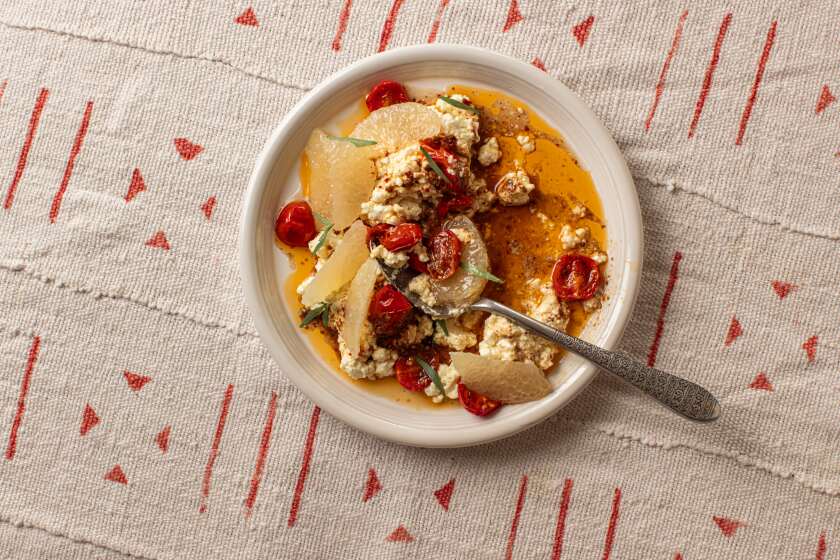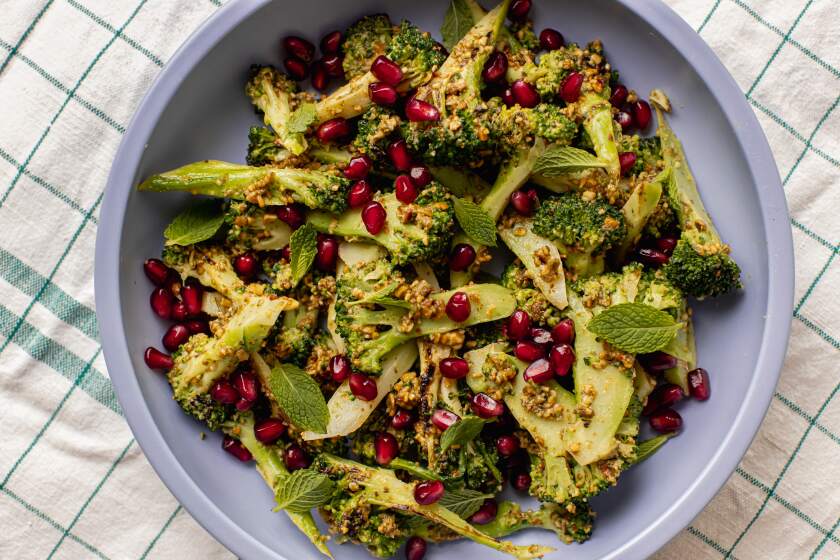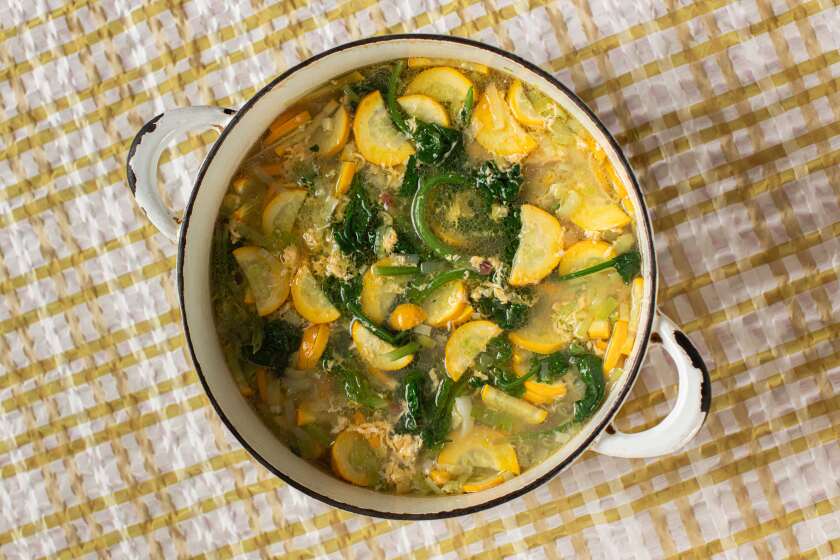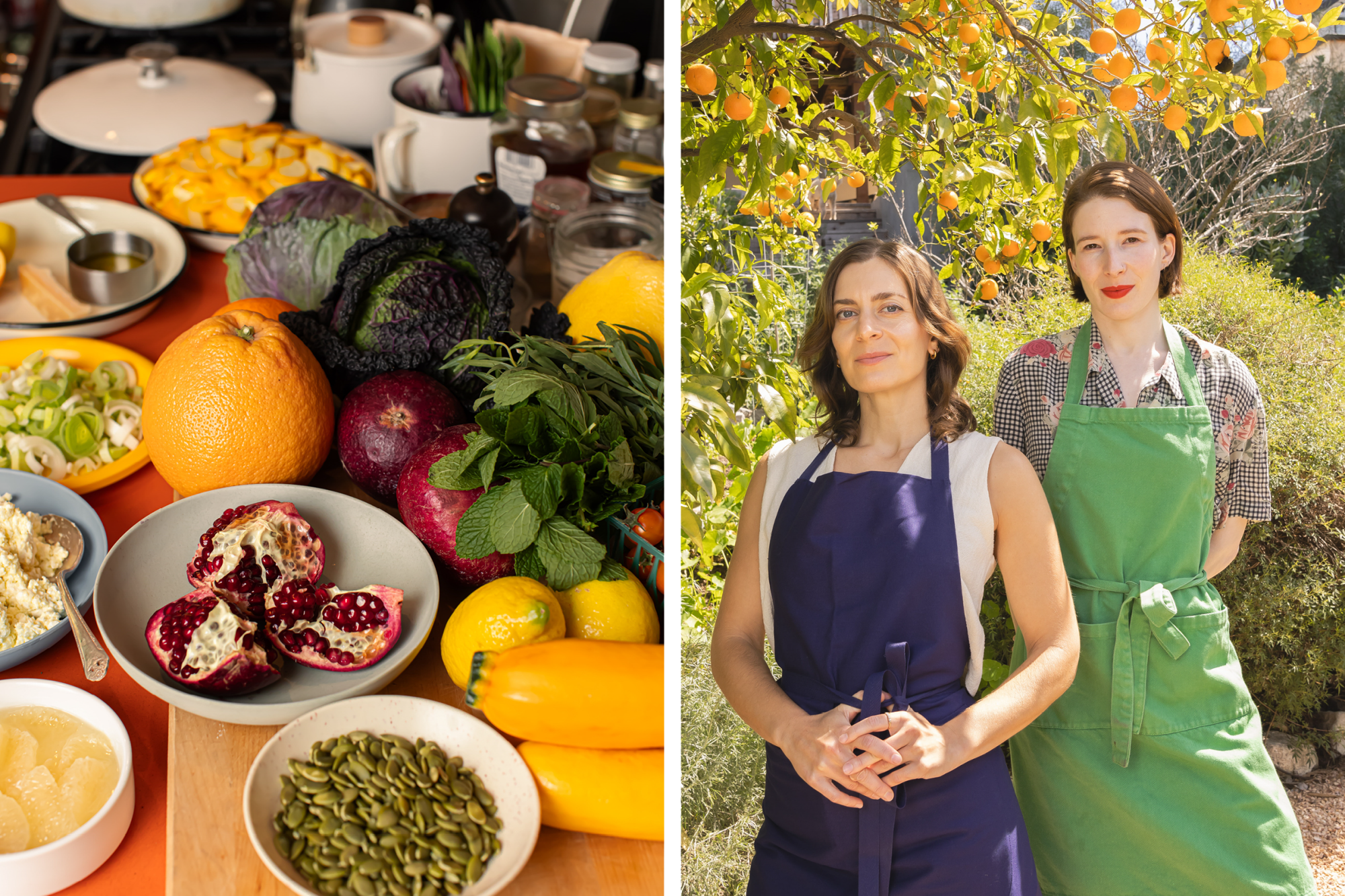
- Share via
Call them the vegetable whisperers. Sarah Hymanson and Sara Kramer are the two produce-obsessed chefs behind Kismet restaurant in Los Feliz, the growing chainlet of Kismet Rotisserie takeout shops (there are three across L.A. now, where the tahini roasted cauliflower is as popular as the chicken) and a new vegetable-forward cookbook to be released in early May.
How is it that Hymanson and Kramer can create seemingly simple dishes of mostly vegetables (and a little meat too) in smart, surprising ways with so much compelling, complex, zingy flavor? It’s the foundation on which they’ve built their restaurants and their careers — spanning New York, where they met, to Los Angeles — and it’s what they set out to show us in “Kismet: Bright, Fresh, Vegetable-Loving Recipes.”
The best new cookbooks of the season are cropping up like the superblooms of spring. They’re getting us into the kitchen to make Joan Nathan’s pecan rolls, José Andrés chilled yogurt soup, marinated feta with grapefruit and spice-roasted tomatoes from Kismet and more.
Their approach comes across as casual, breezy even, but it is, in fact, considered and exacting. “I think we’re not very fussy people,” says Kramer. She’s standing in her yellow and orange kitchen, at home on top of a garden-covered hill in Echo Park. “And our food — though fussy on the back end because we are very specific — I think we’ve conveyed in a way that’s also not very fussy.
“It’s through a lot of our own sort of neuroses, how do we get the very best out of this thing in the most efficient way? ... that I think then translates into, how is this going to be easy for someone and natural and beautiful and delicious?”
Marinated Feta With Spice-Roasted Tomatoes And Grapefruit
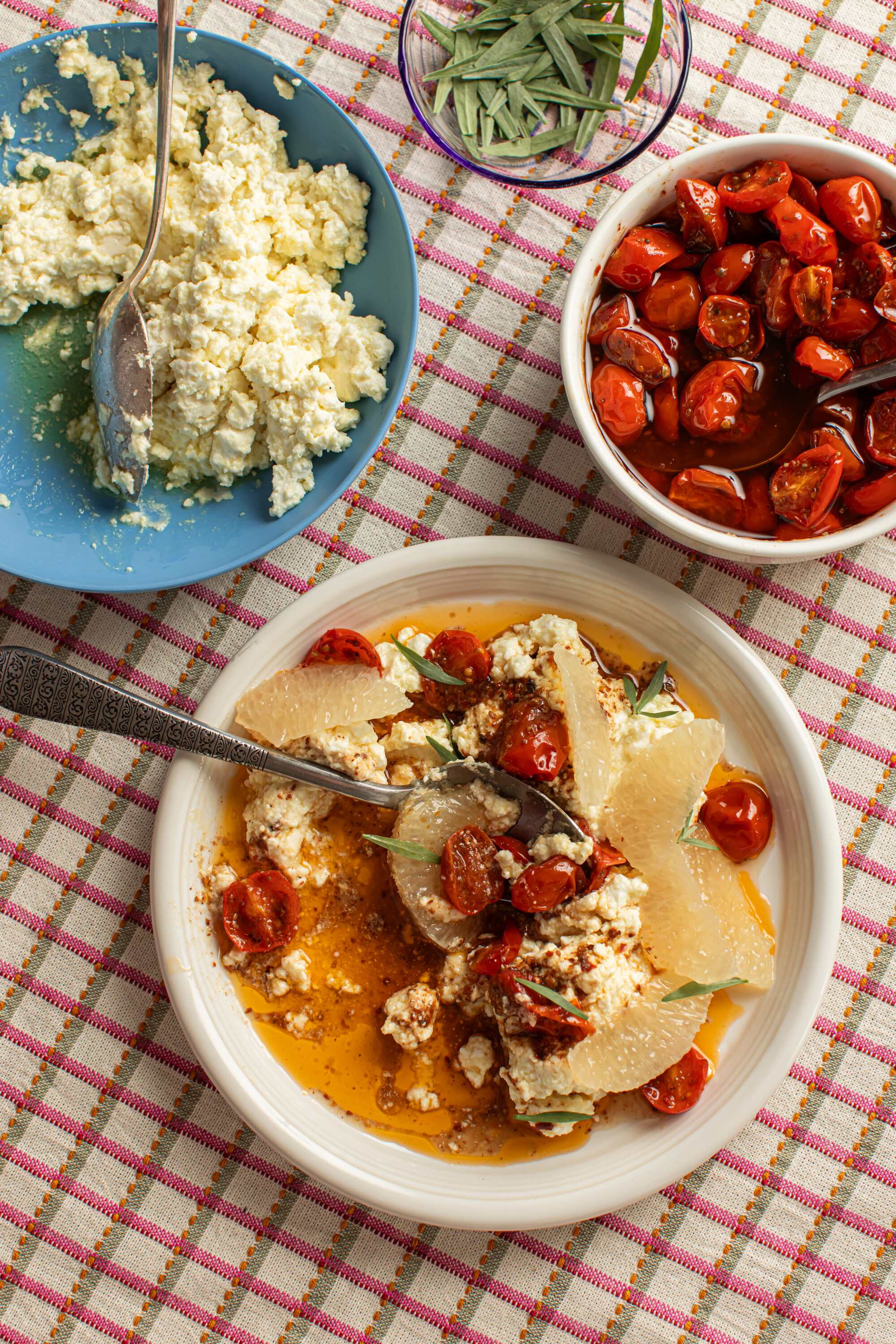
Take broccoli, for example. This is how you should be cooking America’s most popular-but-not-sexy vegetable: Kramer hands over a piece of broccoli that has been blanched in a pot of salted water to jump-start its way to tenderness, then charred briefly in a hot cast-iron skillet .
“Blanching imbues it with flavor already because we’re seasoning it with salt and it’s really permeating,” she says. “And then we’re roasting the broccoli quickly, which gives it another dimension of this toasty, roasty flavor ... so already on its own if you try a piece right now, it’s super delicious and took not very long at all, maybe 15 minutes to do that process.”
The broccoli is for a salad from the book, and the dressing is a “jazz” (à la Molly Baz, the food personality who volleys cheery monosyllabic culinary terms). The name is cute, the flavors are serious.
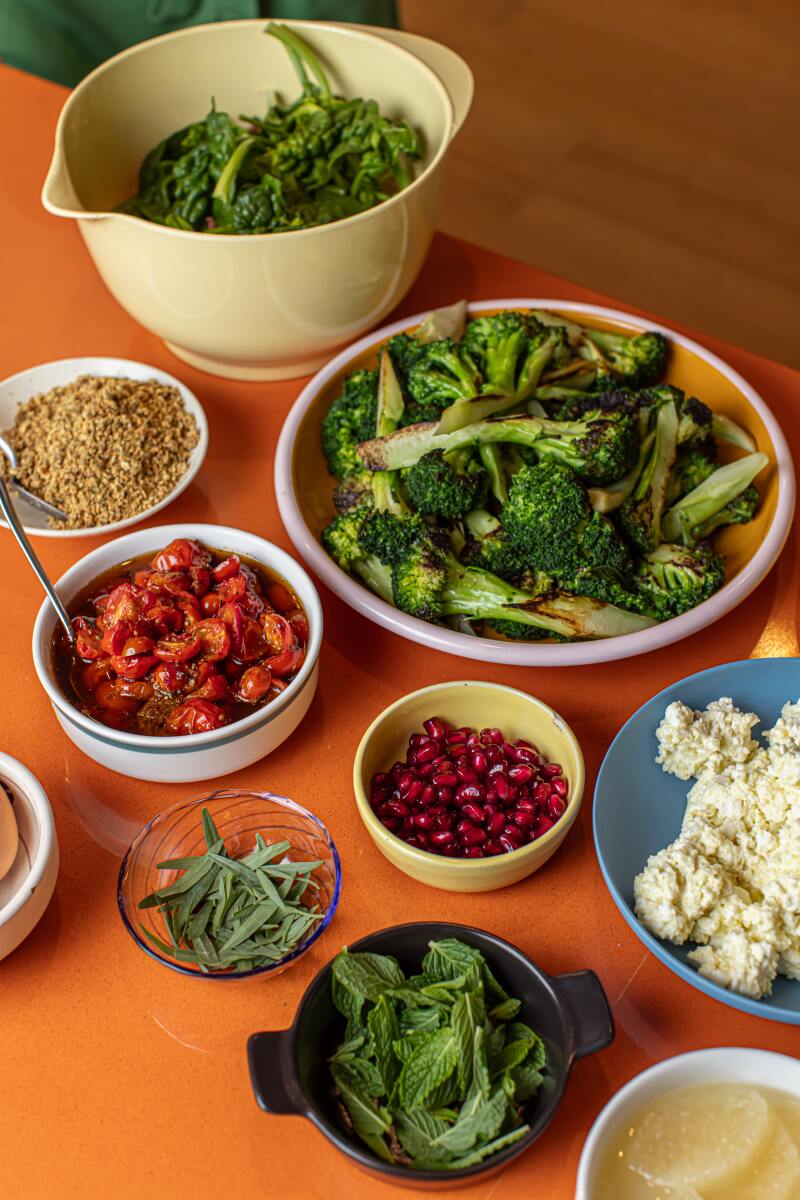
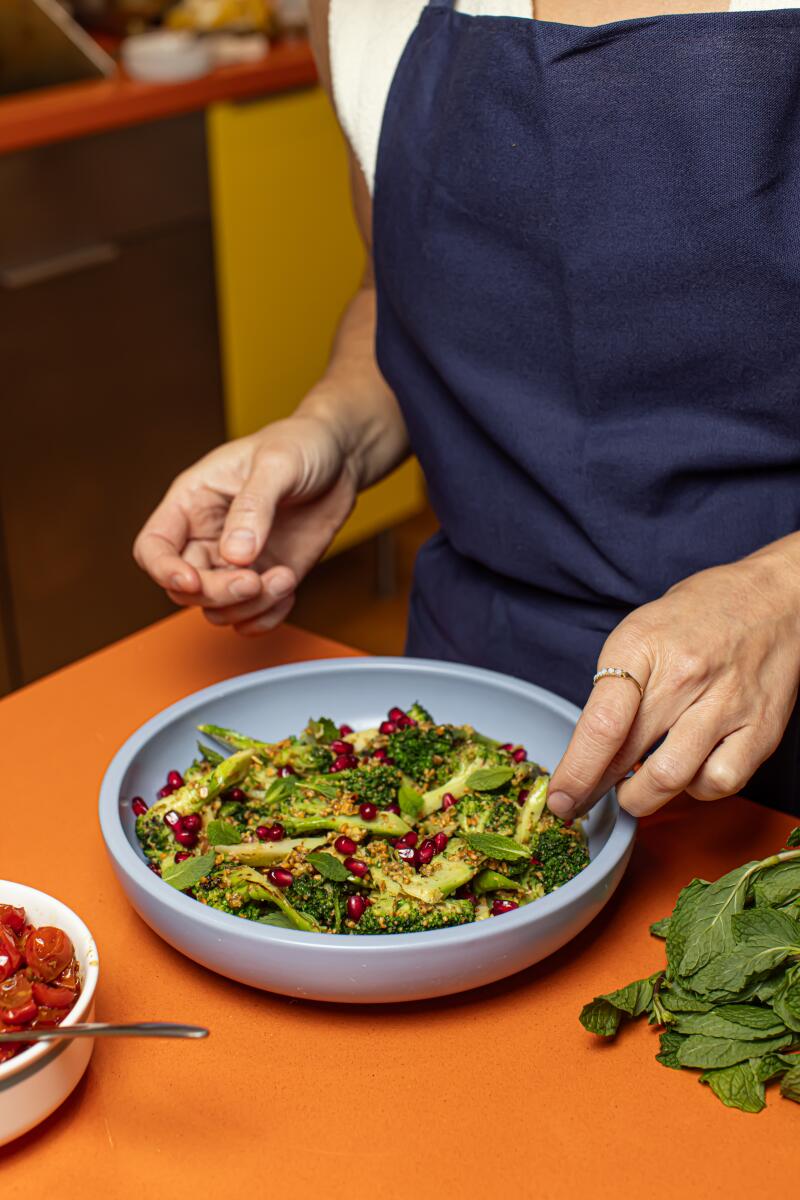
Is this the best way ever to cook broccoli? Maybe!
Broccoli With Pumpkin Seed Jazz
Kramer tops the florets with a mix of pumpkin seeds, olive oil, grated garlic, salt and Aleppo pepper, along with fresh mint and pomegranate seeds — a nod to the Middle Eastern and Mediterranean flavors that Kismet is known for, even if, as Hymanson points out, “we draw a lot of influence from a lot of places.
“What I actually have worked harder to know about is more Asian cuisine,” she says, “kind of broadly a lot of Chinese food, Indian food, Southeast Asian food. Sometimes it will be the same spices in combination that you would find in the Middle East that you’d also find in India or in China or Thailand. So I would say that we’re even less specific than [Middle Eastern]. We both have our own preferences, we come together, and this is where we land.”
For the broccoli with pumpkin seed jazz, flavors, colors and textures collide in its combination of seeds, spices, fresh herbs, tart citrus juice, the pop of pomegranate seeds and — here’s another tip — the grated raw garlic. They suggest adding a whisper of it (always fresh, never pre-peeled) to finished food — roasted vegetables, a pot of cooked beans, aioli, tahini sauce — for bringing “life and depth.”
Breakfast-Lunch-Dinner Soup
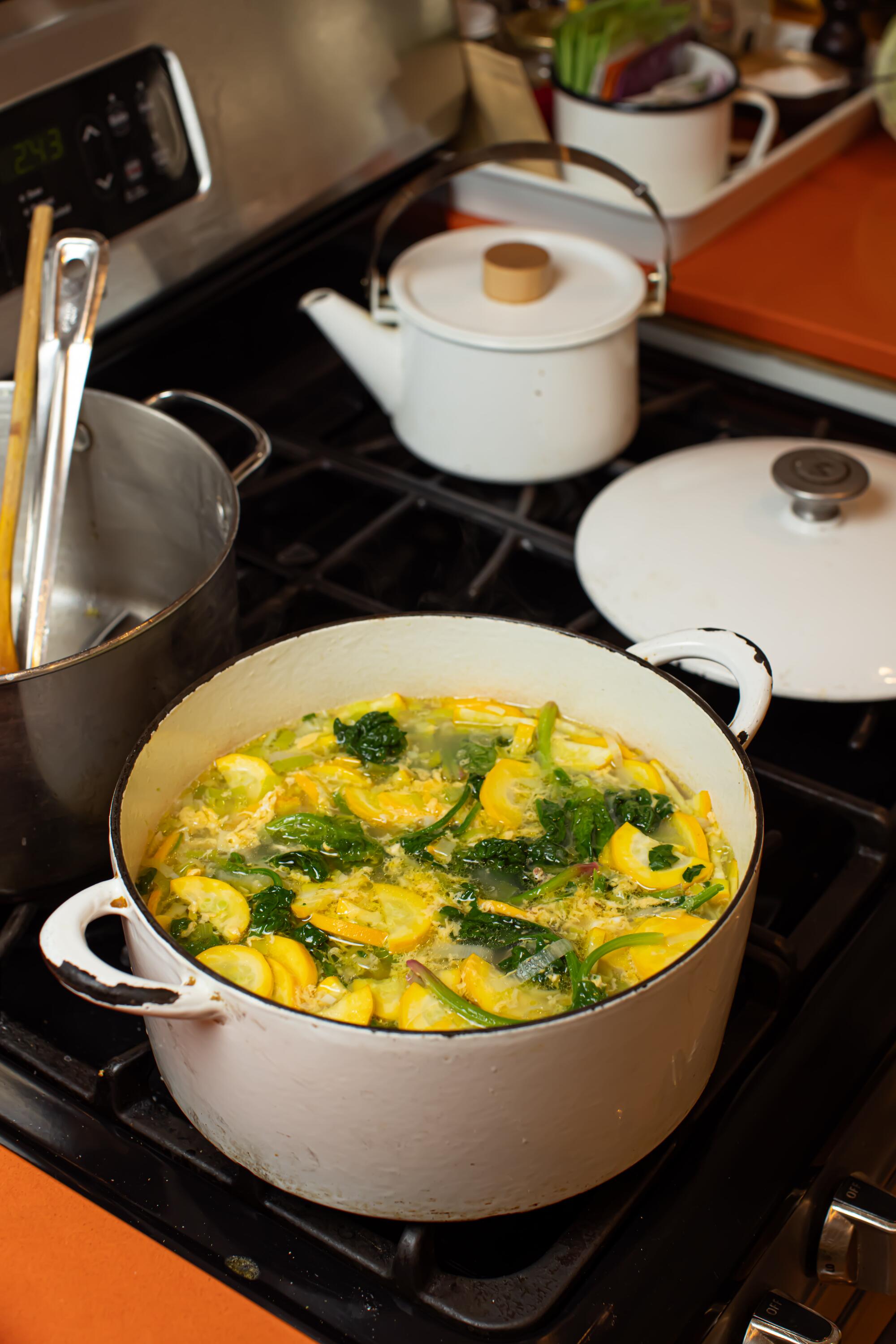
“We’re always trying to build flavor in different simple ways,” says Hymanson, who’s at Kramer’s stove stirring a big pot of breakfast-lunch-dinner soup, another recipe from the book, an amalgam of egg-drop, minestrone and avgolemono. “We’re also big fans of things feeling fresh, so i would say in almost every dish there is a fresh component that helps our food feel alive.”
And though they’re married to the seasons and micro-seasons of Southern California (for peak combinations such as stone fruit and tomatoes in the warmest months), the two know exactly how to (slightly) bend rules. One of the tastiest salads in the book matches grapefruit with tomatoes. Why a winter citrus with a summer fruit? Across much of the U.S., cherry tomato varieties are available year-round; they’re pretty good flavor-wise but even better when roasted in spiced oil. Scoops of the zesty, creamy marinated feta are arranged with the roasted tomatoes and supremed grapefruit segments, the tangy cheese and spicy fruit juices melding into an addictive dressing. “The combination is Shakespearean,” write Hymanson and Kramer in the book, “a love match for the ages.”
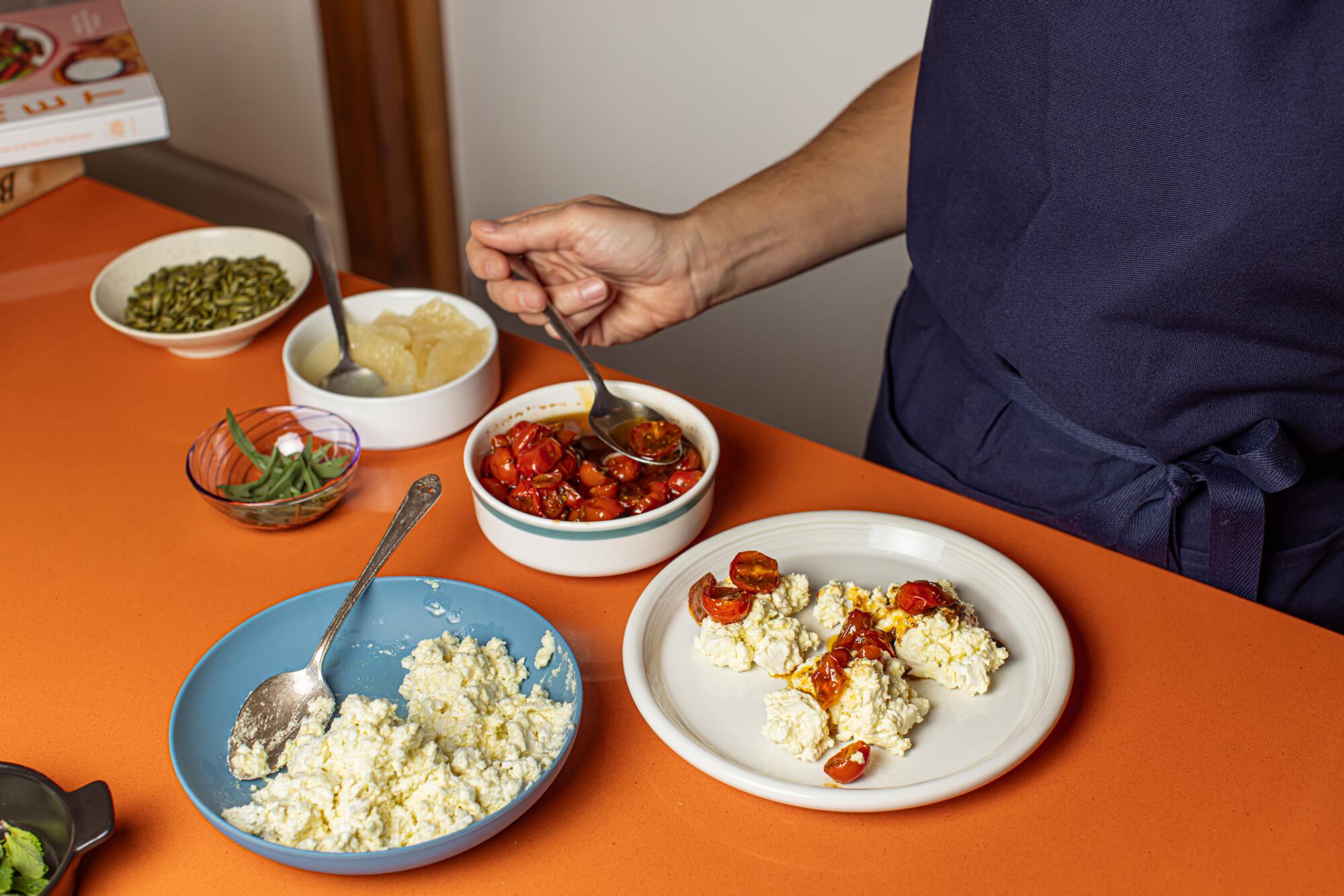
Ideas for combining ingredients are kaleidoscopic: shaved apple with kohlrabi for a root vegetable winter salad; chamomile with caraway in a slightly vinegared honey to dress endive; more marinated feta added to roast squash and anchovy-caramelized onion; their can’t-take-it-off-the-menu cucumber salad with parsley seed za’atar, rosewater labneh, cherries and chervil.
For Kramer and Hymanson, who both worked at Blue Hill at Stone Barns in New York and cooked together at Glasserie in Brooklyn before moving to L.A., the way they eat defines their food as much as how they cook: “We love having lots of small dishes to pick at: a variety of textures, colors and flavors on the table. This snacky style of eating is us in a nutshell,” begins the chapter titled “As Good Tomorrow as It Is Today.” It’s as celebratory as mezze, banchan, tapas or zakuski, honors the abundance of seasonal vegetables in California, and clicks with Angelenos.
“We want things to look delicious, be delicious, not take too much of your time,” says Kramer in her kitchen, “and at the end of the day make it fun.”
Find Sarah Hymanson and Sara Kramer at the Los Angeles Times Festival of Books on Saturday, April 20, at Booth 410, where they’ll be answering questions about “Kismet: Bright, Fresh, Vegetable-Loving Recipes,” 10 to 11 a.m.
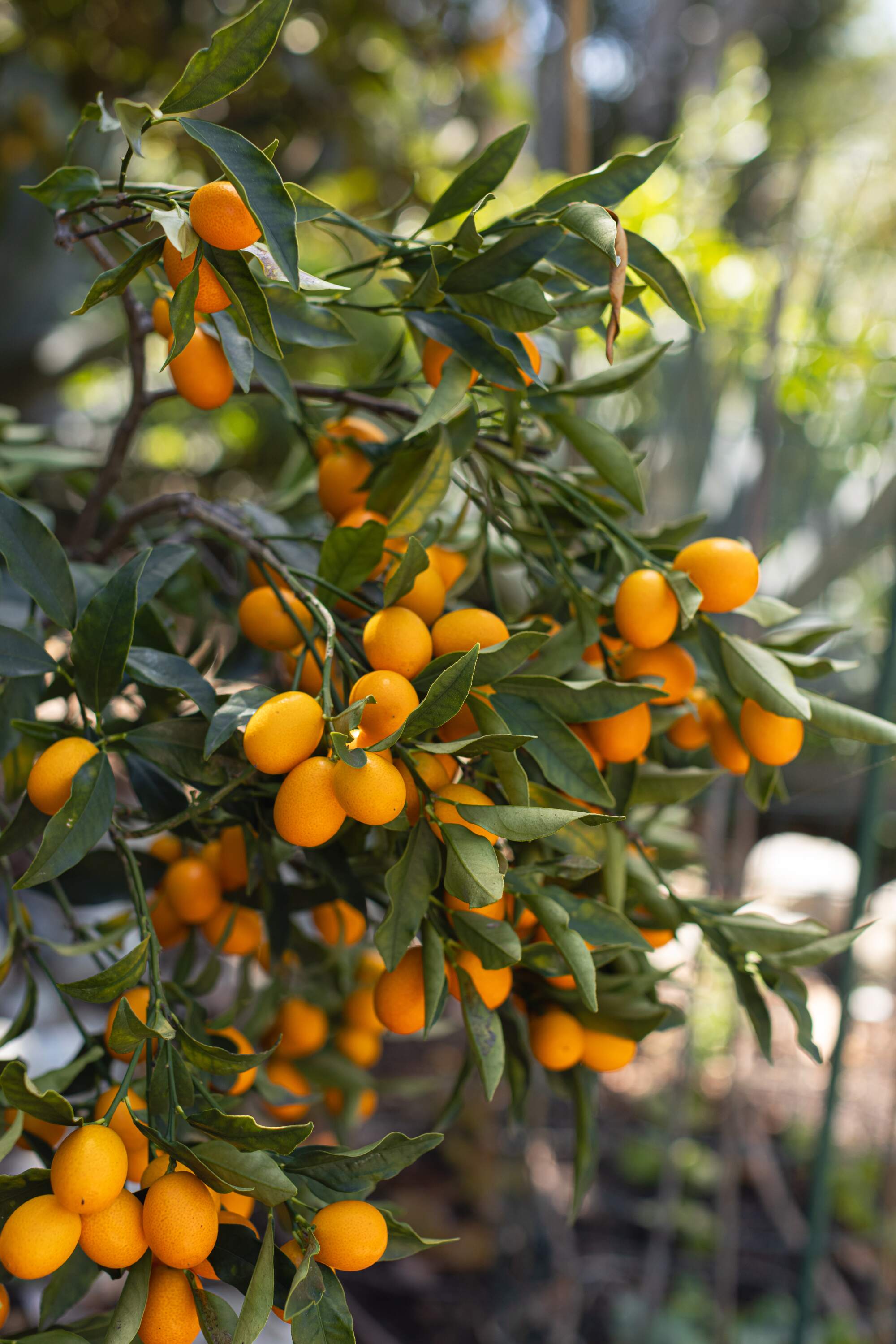
The Recipes
Kismet's Marinated Feta
Marinated Feta With Spice-Roasted Tomatoes And Grapefruit
Breakfast-Lunch-Dinner Soup
Broccoli With Pumpkin Seed Jazz
More to Read
Eat your way across L.A.
Get our weekly Tasting Notes newsletter for reviews, news and more.
You may occasionally receive promotional content from the Los Angeles Times.

